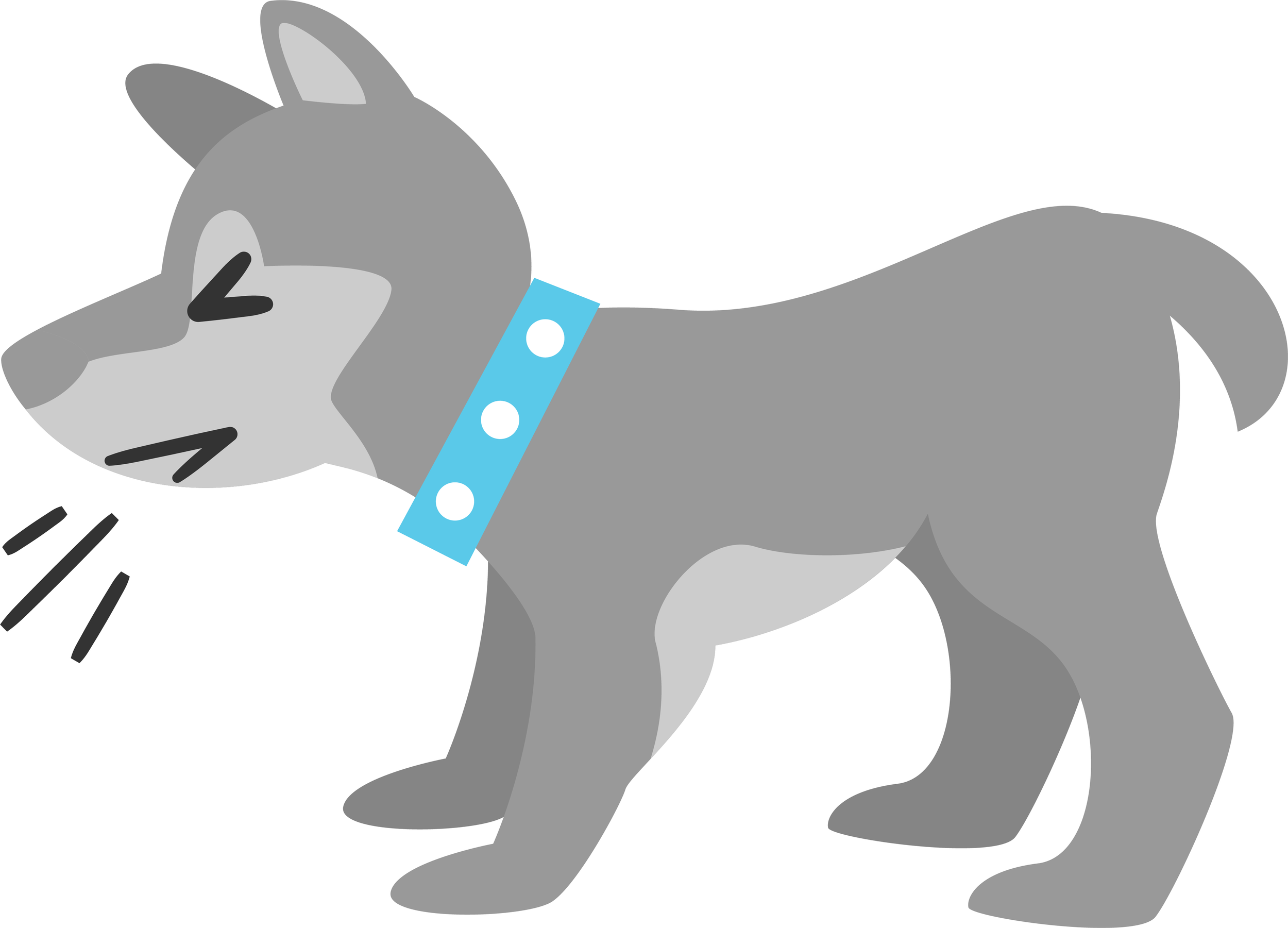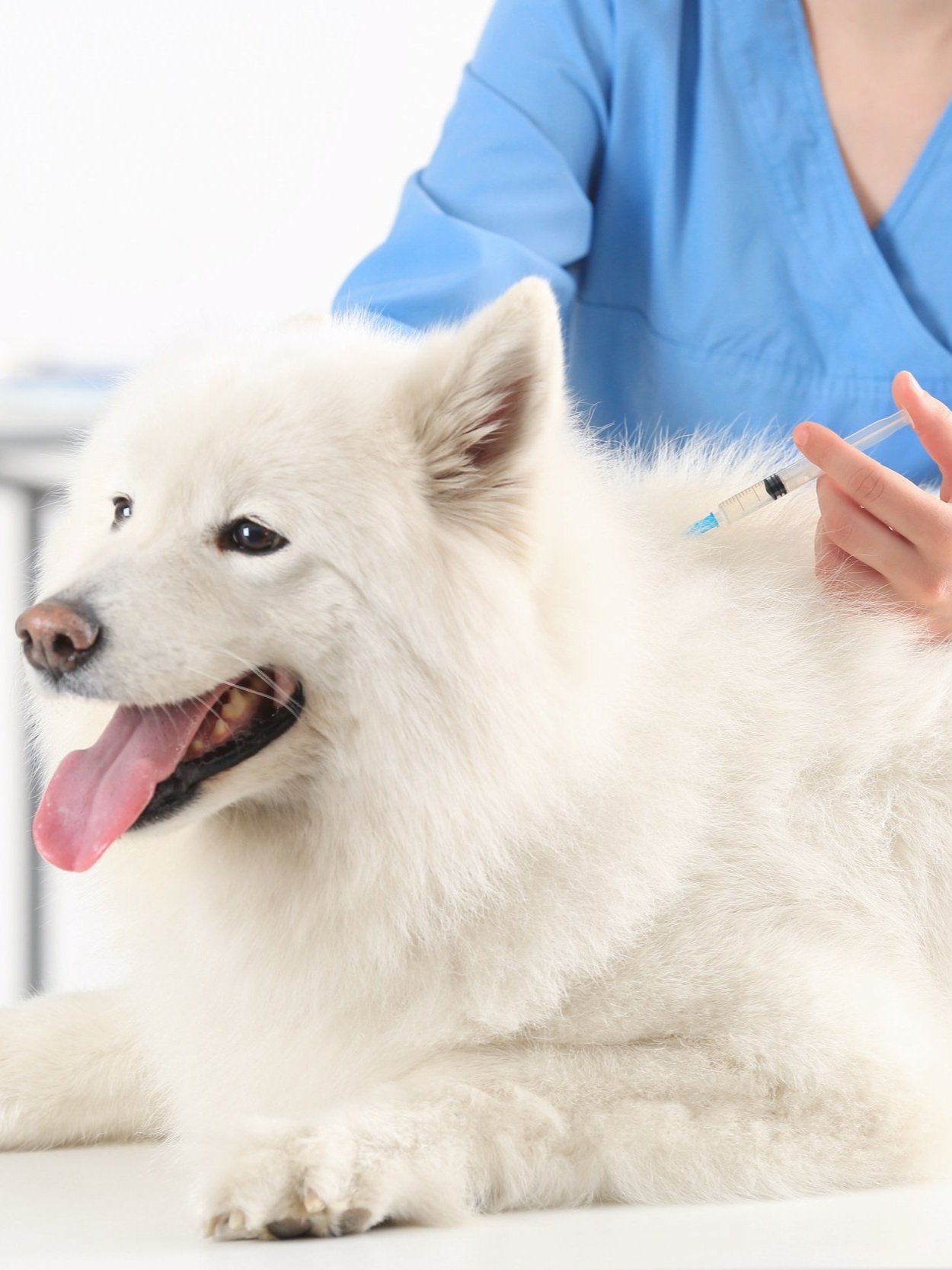More About Kennel Cough
Disease Information
What is Kennel Cough?
Canine Infectious Respiratory Disease Complex (CIRDC or kennel cough) is one of the dogs’ most common infectious diseases worldwide. 4 Estimates vary, but the prevalence of CIRDC is higher in kennels, where the risk of infection increases due to the turnover of animals, intensive housing, illness, and stress. 7
Annually, about 5.5 million kennel cough cases are seen by U.S. veterinarians8 and many of the pathogens associated with kennel cough remain unrecognized and underreported due to a lack of vaccines, commercially available tests, or a 5–7 day turnaround time for central laboratory-based tests. Fewer than 10 percent of these cases provide samples for testing while the remainder receives no laboratory-based diagnoses. 8 The 5.5 million cases annually observed in the U.S. also do not include cases that may have been observed in kennels, shelters, and/or boarding facilities.3 Recent outbreaks of kennel cough in the U.S. have been reported in California and Florida.
Bordetella bronchiseptica is one of several bacterial and viral pathogens that cause the canine respiratory disease complex (CIRDC). Cases of kennel cough in dogs are relatively common in some populations but can be reduced with regular preventive vaccinations. Vaccines for kennel cough only cover a few pathogens and the duration of protection varies. The severity of kennel cough can range from nasal discharge and intermittent coughing in milder cases, to severe life-threatening pneumonia. 2 Dogs are more likely to develop clinical signs if exposed to group housing environments such as kennels, boarding facilities, daycares, or animal shelters. 3
Clinical Signs to observe
in your dog
The main clinical sign in dogs is coughing – a dry hacking cough or honking. It may be dry or productive, meaning it may be followed by a gag or swallowing. Some coughs may sound more like a reverse sneeze, a post-nasal drip, or a tickle in the throat. 5 Coughing may be worse with excitement or exercise. Other signs of kennel cough may include nasal discharge, retching, anorexia, depression, and fever. 1 Clinical signs are highly variable and difficult to predict, from mild illness to pneumonia. 4 The duration of clinical signs can be as short as 1 to 2 days or up to several weeks. 1
Transmission
Kennel cough is airborne and highly contagious. Infectious bacteria and/or viruses float in the air and are inhaled by a healthy dog. Infectious organisms can also be transmitted on toys, food bowls, or other objects. Once inhaled, the organisms adhere to the respiratory cilia (small, eyelash-like filaments on the outside of some cells), where they begin to colonize, making the cilia unable to move the infection out of the dog’s respiratory system. The infectious pathogens also secrete substances that disable the immune cells from consuming and destroying bacteria5 creating an opportunity for secondary infections.3 The incubation period for kennel cough is typically 2 to 14 days.
Risk Factors
Dogs in crowded environments with poor air circulation are most at risk for kennel cough. The disease is particularly common where large numbers of dogs are housed together, such as animal shelters, boarding facilities, obedience class, grooming parlors, animal hospital waiting areas, or daycare facilities.
Dogs that are immunocompromised may be more susceptible to the disease and experience a more extreme illness. Other risk factors for more severe illness are chronic lung diseases such as bronchitis, ciliary dyskinesia, and hypoplastic or collapsing trachea.1
Diagnosis
If you suspect your dog may have kennel cough, contact your veterinarian and keep your dog away from other dogs. Diagnosing kennel cough will require a conversation with your veterinarian but may not require a veterinary visit if symptoms are mild. If a veterinary visit is recommended, it will likely include a physical examination and collection of the dog’s history, including a discussion of potential exposure from other dogs. A complete blood count, serum biochemistry and urinalysis may be performed.3 A bacterial culture obtained from nasal swabs, oropharyngeal swabs, or tracheal washes may also be required.1 The results of these tests may take several days (varies by capabilities in each veterinary office). Rapid diagnostics have led to faster test-to-result turnaround time, reduced follow-up loss, and enabled prompt case management. Kennel cough often shares similar clinical signs with other viral and/or bacterial illnesses, and a dog may harbor several co-infections. However, there is currently no rapid on-site testing with the ability to simultaneously detect multiple disease agents and results reporting for kennel cough.
Treatment
If your dog is exhibiting signs of kennel cough, contact your veterinarian immediately and keep them away from other dogs. In some cases, a visit to the veterinarian may not be necessary. Clinical signs in most dogs will resolve without treatment. A cough suppressant may be prescribed to provide relief to the dog and pet owner, especially since the cough can persist for weeks and may worsen during the night. Clinical signs worsen when the dog lays down and the lungs and nasal cavities are resting on one side for a longer time, worsening the clinical signs. Over-the-counter antitussive medications may be effective for dogs with mild clinical signs. Dogs with clinical signs persisting beyond one week should likely see their veterinarians and receive treatment with antimicrobials.3 Quarantining infected dogs should continue 14 days after clinical signs have been resolved, as this is generally how long it takes for a dog to clear the infection and no longer be contagious.6
Prevention
Vaccines are available for many (but not all) CIRDC pathogens to decrease the severity of clinical signs and minimize transmission. Vaccination can be given orally, via a nasal spray, or as a separate injection. Follow your veterinarian’s recommendation on the type of vaccine best suited for your dog or puppy. The vaccine should be given annually throughout the dog’s life.5 Most canine communities such as boarding facilities, daycares, and groomers will require proof of vaccination before allowing your dog to enter. Some facilities may require a booster, regardless of when the dog was last vaccinated.
In group housing situations, precautions should be taken such as an isolation period for new dogs entering the population, daily monitoring for clinical signs, good sanitation, and quarantine protocols for dogs with clinical signs.3
Kennel cough can be a devastating illness for both pets and pet owners.
Better understand the challenges of this disease through a personal account.
Boarding my dog
I took a brief vacation and put Vino, my 7 ½ year old furry companion, in a free-roaming boarding facility. I provided all the necessary vaccination documentation; Vino had been vaccinated for kennel cough. When I returned to pick him up, I learned he had developed a cough. When we got home, he would awaken 5-6 times a night with a very deep and hacking cough. After two nights, I took him to my veterinarian.
Veterinary Visit
My veterinarian offered to take a blood sample and prescribed antibiotics as an initial treatment. The blood sample was going to total over $300. No additional testing was offered to diagnose kennel cough. Blood test results would be returned in about a week. I opted not to proceed with the blood sample since the veterinarian’s instinct indicated kennel cough was the most likely diagnosis. The antibiotics were more than $30/day for a 10-day treatment and should be given twice a day. In addition, the veterinarian prescribed an antinausea medication and cough suppressant. Through my own research online, I learned cough medicine and honey are potential solutions. The honey seemed to help.
Very Slow Improvement
Vino was better during the day – albeit a bit tired -- but the nights were awful. He continued to cough for the next two weeks, especially during the night. Three weeks after I returned from traveling for work, Vino was still coughing, but slowly improving. He has now recovered and is back to being himself.
Perspective
Many pet owners have similar experiences. Kennel cough is one of the most common infections in dogs that are in shelters or boarding facilities, occurring in more than 5,000,000 dogs every year in the United States. It takes them a long time to recover and unfortunately there is currently no easy way to diagnose them. Some dogs get sicker than others, and we feel helpless. And it all could be avoided with just one simple test. The problem is that these tests aren’t so simple currently.
Footnotes
1. Bordetella Infections in Dogs and Cats: Pathogenesis, Clinical Signs, and Diagnosis, University of Missouri-Columbia, Craig Datz, DVM, DABVP
2. Dogs Infected with Bordetella bronchiseptica and Canine Influenza Virus (H3N8), Laura Nafe, DVM, MS, Diplomate ACVIM (Small Animal Medicine) University of Wisconsin -Madison
3. Canine Infectious Respiratory Disease, Krystle L. Reagan, DVM, PhD, Jane E. Sykes, BVSc (hons) PhD
4. Analysis of lung microbiota in dogs with Bordetella bronchiseptica infection and correlation with culture and quantitative polymerase chain reaction, Aline Fastres,
Morgane A. Canonne, Bernard Taminlau, Frederic Billen, Mutien-Marie Garigliany, Georges Daube and Cecile Clercx, Veterinary Research, 2020, 51:46
5. Kennel cough in dogs https://veterinarypartner.vin.com/default.aspx?pid=19239&id=4951478
6. Ask the Expert: Understanding kennel cough – and how COVID-19 contributed to its outbreak. https://msutoday.msu.edu/news/2021/kennel-cough
7. Aetiology of Canine Infectious Respiratory Disease Complex and Prevalence of its Pathogens in Europe. Day MJ, Carey S, Clercx C, Kohn B, MarsilIo F, Thiry E, Freyburger L, Schulz B, Walker DJ. 2020. J Comp Pathol 176:86-108.
8. ContolPoint/VetSense. 2020. Market Research.
Want to learn more?







